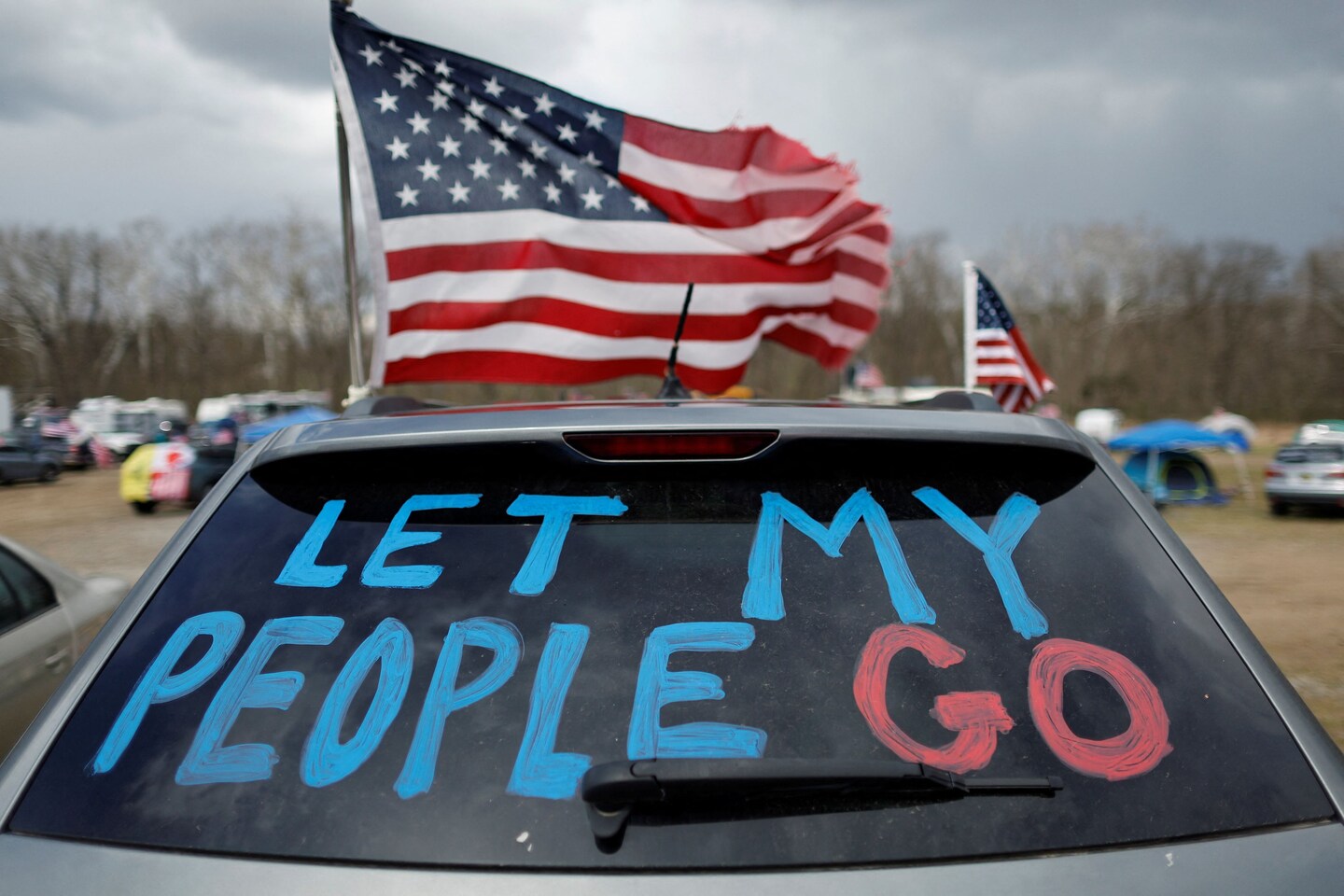Opinion | Covid-19 may be hastening democracy’s demise

Follow Jennifer Rubin‘s opinions
FollowUnsurprisingly, ABC News reports, “Unvaccinated Americans are several times more likely to be hospitalized and die and those living in rural areas, as well as conservatives and Republicans, were among the most hesitant to be vaccinated.” As a result, death rates in red states are more than 38 percent higher than in blue states. Red America blames government for closing schools and causing economic turmoil; blue America blames the unvaccinated for willfully risky behavior that has held back recovery from the pandemic.
Polling provides a portrait of a country that’s becoming even less trusting. Gallup reports: “In 2021, 39% of Americans had a great deal or fair amount of trust in the federal government to handle either domestic or international affairs. The international trust number is the lowest in Gallup’s history of asking the question. The domestic trust number is among the lowest. Similarly, Pew Research reports that 24% of Americans say they can trust the government to do what is right ‘just about always’ or ‘most of the time,’ near that organization’s historic lows.”
The phenomenon is happening in other Western democracies, too. More In Common, an international initiative committed to addressing polarization in democratic societies, found in a recent study of six European countries: “The long pandemic has left people feeling pessimistic, uncertain and distrustful. Social trust indicators have dropped since June 2020, many doubt that governments and the media are telling them the truth about covid, and large numbers say the pandemic has hurt their confidence in our ability to tackle future challenges.” Unvaccinated respondents experienced even higher levels of suspicion and distrust.
The data strongly suggest that we are emerging from the crisis with lower levels of trust than before. This might account for why Americans seem excessively grouchy and unwilling to credit government for the recovery thus far. And it almost certainly is connected to higher levels of depression and anxiety in our daily lives.
This is a problem for governance and for democracy. People with exceedingly low levels of trust are often disposed to favor authoritarian, right-wing parties; embrace conspiracy theories; and feel victimized by outsiders. So no one should be shocked, then, by the staying power of Hungarian Prime Minister Viktor Orban or the rise of Marine Le Pen in France. Nor should anyone be surprised that former president Donald Trump and red-state governors remain a potent political force despite their atrocious records on covid. They feed on and stoke distrust. They are playing to their base’s anxiety that elites have failed and lied to them.
Democracy defenders would be foolish to ignore the lingering emotional and political effects of covid. (President Biden’s initiative on mental health may be the single most useful thing he has proposed.) Trying to argue with voters that things are looking better than they think they are would likely be futile. So how does one rationalize with and govern a society with low trust, getting lower with each crisis? Democracy in the United States and Europe might depend on solving that quandary.
This article has been archived for your research. The original version from The Washington Post can be found here.


